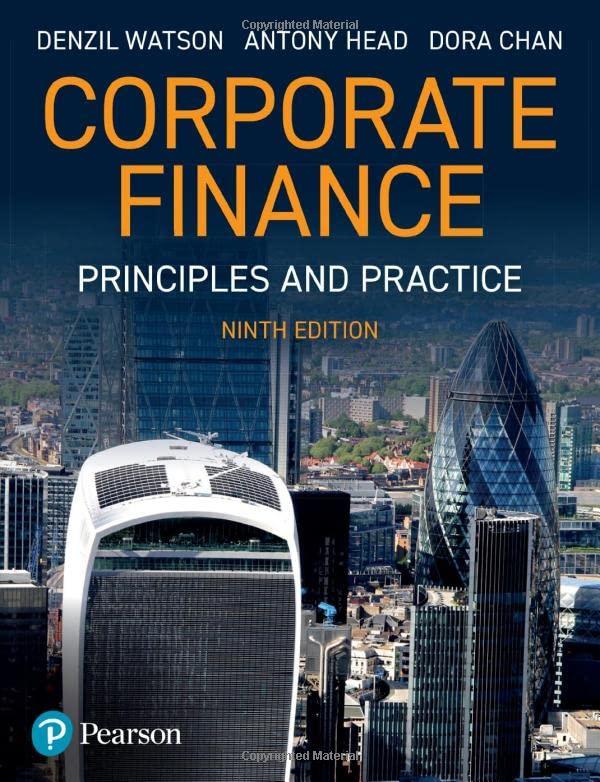It is 15 December, and a company wants to borrow 2m, for a period of three months,
Question:
It is 15 December, and a company wants to borrow £2m, for a period of three months, in three months’ time. The three-month LIBOR rate stands at 6 per cent and the company wants to guard against an interest rate increase. To give the company the option to borrow at an effective rate of 6 per cent, it buys four 15 March LIBOR sterling put option contracts of £500,000 each, with a strike price of 94. The price the company pays for these option contracts is 0.17 per contract, i.e. a cost of 17 ticks per option contract. Given that ticks have a value of £12.50, this represents a cost per contract of £212.50 (17× £12.50. The cost of four option contracts to the company is therefore £850. If interest rates have increased to 8 per cent by 15 March, the company exercises its option contracts, allowing it to sell futures contracts at 94. The futures price, assuming no basis risk (see Section 12.4.1), will have dropped to 92 (i.e. 100–8), so the company makes a 2 per cent gain on its futures transactions by buying at 92 and selling at 94. This represents a gain of 200 ticks at £12.50 each per contract, giving a gain on four contracts of 200 × £12.50 × 4 = £10,000. This exactly balances the 2 per cent increase in its borrowing cost, which is 2 per cent × £ 2m × 1/4 = £10,000. In exchange for an option premium of £850, the company has guaranteed a maximum borrowing rate of 6 per cent. If interest rates had dropped to 5 per cent on 15 March, the company would let its option contracts expire and would borrow at the lower market rate of 5 per cent. Its loss would be limited to the premium of £850 paid.
Step by Step Answer:

Corporate Finance Principles And Practice
ISBN: 9781292450940
9th Edition
Authors: Denzil Watson, Antony Head





